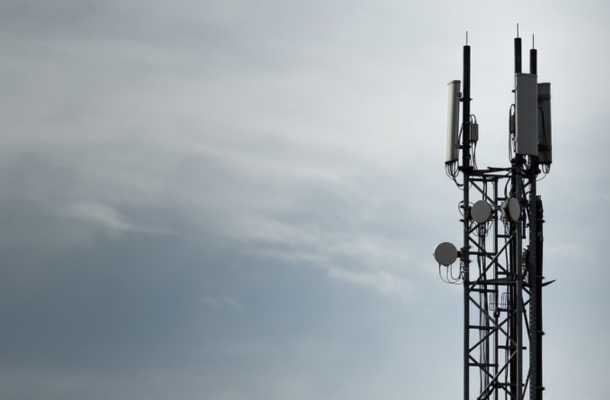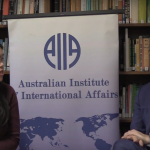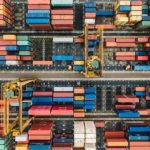The Huawei arrests should ring alarm bells in Australia

China’s response to indictments against the tech-giant Huawei has important lessons for Australia.
The American indictment for industrial espionage handed down against Chinese technology giant Huawei this week was a long-awaited effort to convince many around the world that the fears and stories about the firm had a substantial basis.
It followed on the heels of Canadian authorities taking the firm’s Chief Financial Officer, Wanzhou Meng, into custody in December 2018 following an extradition request from the United States. Meng faces charges of bank fraud and conspiracy related to dealings with Iran. Canada has become subject to intense and vociferous attacks from Chinese officials as a result.
There are plenty of lessons for Australia in the way the Chinese state has responded to these developments.
The first is that the remaining pretences about Huawei as simply another telecom giant have clearly been abandoned. While Huawei is technically a private company, it has always been treated as a national champion and supported with generous access to loans, technical support and the corridors of power.
The company’s de-facto State-Owned Enterprise (SOE) status is also reflected in the number and types of passports held by Meng. These number some six or seven and include a P-passport, a special public affairs passport for those representing SOEs and performing other state-recognised functions. That she is reputed to have once worked for the Ministry of State Security is perhaps also not irrelevant.
Other extraordinary actions by Chinese authorities to pressure Canada include not only public excoriation in the press and attacks by its diplomats but also the arrests of two Canadians in China and the sudden retrial of an accused Canadian drug smuggler.
The arrests of businessman Michael Spavor and ex-diplomat Michael Kovrig are clear political acts and Chinese press like The Global Times have made their connection to the Meng-Huawei case only too clear.
The sudden and unexpected retrial of the accused drug trafficker, Canadian Robert Schellenberg, and his immediate sentencing to death was an even more stark gesture and a blatant attempt to pressure Canada. But few actions have been directed at the United States, despite its authorities having called for the extradition of Meng for alleged offenses under American law.
There are a number of reasons why the Chinese state has reacted so strongly. These include real outrage that one of China’s most successful enterprises, a world leader in telecommunications, has been subjected to the laws of the United States – a circumstance which few Chinese believe is legitimate. That Canada has been the actor responsible seems to add insult to injury.
There is incredulity over Canadian claims that it is merely following the law when Chinese frames-of-reference see law as a political tool and claims of rule-of-law as hypocrisy at best. The attacks on Huawei also play into official narratives of China as the victim of repeated mistreatment and bullying by foreign powers exemplified by the official “century of humiliation” narrative.
This powerful idea is actively propagated via the Chinese Communist Party’s (CCP) longest running political indoctrination campaign, the Patriotic Education Campaign, initiated in the wake of the brutal suppression of the student movement of 1989. This key myth promotes the CCP not as the vehicle of socialism but as the central defender against further humiliations. The attacks on Huawei, therefore, demand the strongest response.
Emotional reactions aside, the rising tide of scepticism about the trustworthiness of Huawei as a business partner threaten a key Chinese coming-of superpower-age aspiration: that of becoming a setter of international standards rather than a standard taker. Chinese leaders want influence commensurate with how they view growing Chinese power.
Huawei is at the forefront of 5G technology and as a result is well placed to influence, if not significantly set, the standards that will determine how this critical new technology will work around the world. Success in this area is related to overcoming claims of the inequity of China having to accept standards – from Human Rights to technological ones – set by others.
The 5G standards will be central to technological development over the next few decades because they facilitate and determine how the internet-of-things (IoT) and the increased interconnectedness of technologies will work. To have Huawei and its standards as central to these developments will put it, and by extension China, into the very homes and hands of anyone with any connected devices.
Huawei Australia’s attempts to win favour by appointing former political luminaries and business heavyweights to its board, and to run its local operations as seemingly independently as possible, may also have backfired.
With the reputation of Australian politicians and business leaders for probity and being corruption free in significant decline, any wins in Canberra via personal connections have probably been cancelled out by growing public scepticism.
Moreover, it is precisely the official Chinese reactions to events in Canada – hostage taking, vituperation and threats – which threaten to undermine Huawei’s reputation more than the original allegations.
Even if we ignore China’s new laws which can compel company participation on national security grounds, the dramatically increased emphasis on civilian-military integration under Xi Jinping, Huawei’s longstanding military connections, its CCP cells, internal “wolf” culture and pride in working with the military and police, the fact that such dramatic and arbitrary whole-of-party-state responses have been mobilized in the company’s defence demonstrate clearly that the CCP sees its interests and those of the company as inseparable.
This article was published by the Australian Institute for Australian Affairs.
Gerry Groot is the Senior Lecturer in Chinese Studies in the Department of Asian Studies at the University of Adelaide. His research interests include Chinese politics, soft power and Asian influences on the world in the past and present day.













